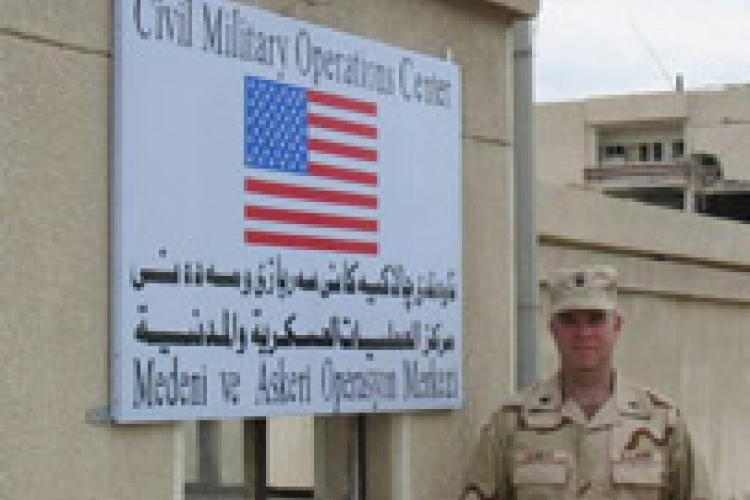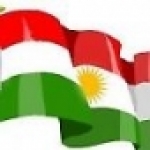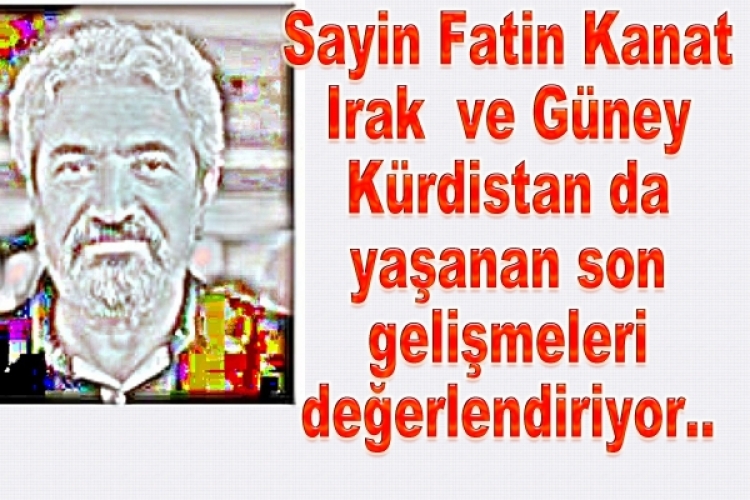Kurdish Globe interviews Harry Schute
Schute was born in New Jersey in the US, in 1963. He's retired from the US Army Reserve as a Colonel. He was the Coalition's commander for the Kurdistan Region from May 2003-February 2004, later serving as the Chief of Staff for CPA-North. In this wide-ranging interview Schute discusses the security challenges, both in the KRG zone and more broadly in Iraq proper, in the context of the prevailing political, cultural and administrative conditions.
Q. The Kurds have been subjected to harsh treatment by subsequent Iraqi governments since its establishment after the First World War. Do you think the U.S. troop withdrawal from Iraq may put the Kurds in a difficult position with the Iraqi State?
A. At the moment, there are still American troops in Iraq. The numbers will go down in a couple of months, but there will still be approximately 50,000 here. I think that is likely sufficient based on the current security environment and based on the role the U.S. military is playing vis-a- vis the Iraqi Security Forces. Remaining troops are expected to be drawn down further over the next year. In my opinion, we will see a number of American troops here in some capacity even beyond 2011. In spite of this, it is important for the Kurdistan political leadership to get agreements well solidified and brokered with the various Iraqi Arab factions before the U.S. presence is drawn down to minimal levels.
Q. America has played a significant role in terms of security and stability across Iraq, but has chosen to stay silent against Iranian shelling of Kurds' border villages. Why is that?
A. I am not currently a part of the U.S. government so I am not aware why they have chosen their current path regarding any statements or lack of statements related to the Iranian border bombardments.
Q. Do you believe U.S. troop withdrawal from Iraq may pave the way for Iran to have an upper hand in Iraq since a majority of Iraqis are Shiite? If that happens, how do you see the U.S. reacting?
A. As I mentioned before, in my opinion we will see some level of U.S. military presence in some form or another for many years to come. They may be advisors, trainers, or logistics people, or something of the sort, but I think we will see a presence here for some years. That presence ought to serve as a deterrent for major hostile overtures from neighbors.
Q. Based on Item 27 of the Iraq-U.S. Status of Forces Agreement, the U.S. has the authority to use force to protect Iraq's territorial integrity. Why doesn't America act when Turkey attacks PKK and crosses Kurdistan Region's border?
A. As I mentioned before, I am not a representative of the U.S. government, and as such I don't know what current planning is regarding any contingencies that may arise regarding Iraq or its neighbors.
Q. Kurdistan Region security has had stability, but recently the kidnapping and killing of a student took place in broad daylight. Do you think that was a warning of more terrorist activity in the region?
A. Within Kurdistan, one must always be vigilant and aware of the potential dangers of terrorism. We live in a tough neighborhood where an hour or so down the road in several directions there are people and groups who hate the people of Kurdistan and wish it ill. As long as those people and groups are present, the people of Kurdistan must be on guard against the possibilities of terror and the presence of terrorists and their supporters. The person who gives a terrorist refuge or aid or comfort is just as bad as the terrorist himself.
Q. U.S. Vice President Joseph Biden proposed partitioning Iraq into three regions--Kurds, Shia, and Sunni--before getting his post. But right after that, Biden's federalism plan disappeared from his official website. Does that mean the U.S. just wants to use Kurds as a pressure card in Iraq?
A. I am aware of his writing an essay with Leslie Gelb promoting the merits of a loose confederation of sorts with ethnically focused regions. And that essay was written in the midst of a political campaign when the Vice President was still candidate Biden. Of course his status has changed now from presidential candidate to member of the Obama Administration, and as such his activities need to be in sync with the Administration's policy, which does not include any kind of regional partitioning. It is only natural that official pronouncements from the Vice President would line up with the Administration. It doesn't mean anything more or less than that.
Q. Iraqis think that after the U.S. leaves Iraq, civil war will break out. If that happens, how will America address this? Will it use military action, or just watch like it did in Vietnam?
A. Firstly, I am not part of the U.S. government, so I don't know what the current planning options are relating to any U.S. response to a hypothetical civil war in Iraq. Moreover, I don't have a crystal ball, nor do I know anyone who does. Has the U.S. military completely left now? No. Has a civil war broken out? No. A lot of "ifs" to be guessing on outcomes.
Q. Do you think a new Iraqi government can be formed without Kurdish participation?
A. Personally, I don't believe the new government in Baghdad will be formed without Kurdish participation. I am of the opinion that the government will include people from the Kurdish bloc one way or the other.
Q. As you may know, one of the most strategic relations that the KRG has is with Turkey. The recent visit of President Barzani to Turkey indicates the level of good relations. Turkey is a NATO member and perhaps on its way to joining the EU. However, its own Kurdish question and the presence of PKK have led to the deterioration of the KRG's relation with Turkey. How do you see KRG-Turkey relations? What can be done in order to make it more sound and improve it? Might proper relations between the KRG and Turkey play a significant role in Iraq's stability? Or perhaps it would have greater effect on a regional level?
A. I think the relations between the KRG and Turkey are developing at the moment in a very positive manner. If one looks back to the condition of the relationship one year or two years ago, it was very different back then in a negative way. The best way to move forward is a continuation of the two biggest elements that are in play right now. That is, continued business engagement as we saw with the very large trade delegation that was just hosted in Erbil over the last couple days; and, continued high-level engagement at the senior governmental level to continue building confidence and relations. These two elements are the biggest elements that will continue the positive development of the relationship. These steps must continue in spite of what is happening with the PKK situation, which cannot be used as a distraction to slow progress on the core relations between the KRG and Turkey. Certainly, good relations between the KRG and Turkey can also have a regional impact as well. It can serve as a regional example of a government (Turkey) dealing in a positive way with an element of the regional Kurdish population, that is, the KRG. Those relations will also, I think, have a positive spin-off by Turkey toward its own Kurdish population. And who knows, perhaps the positive spin-off could go further in effecting relations in the broader region.






